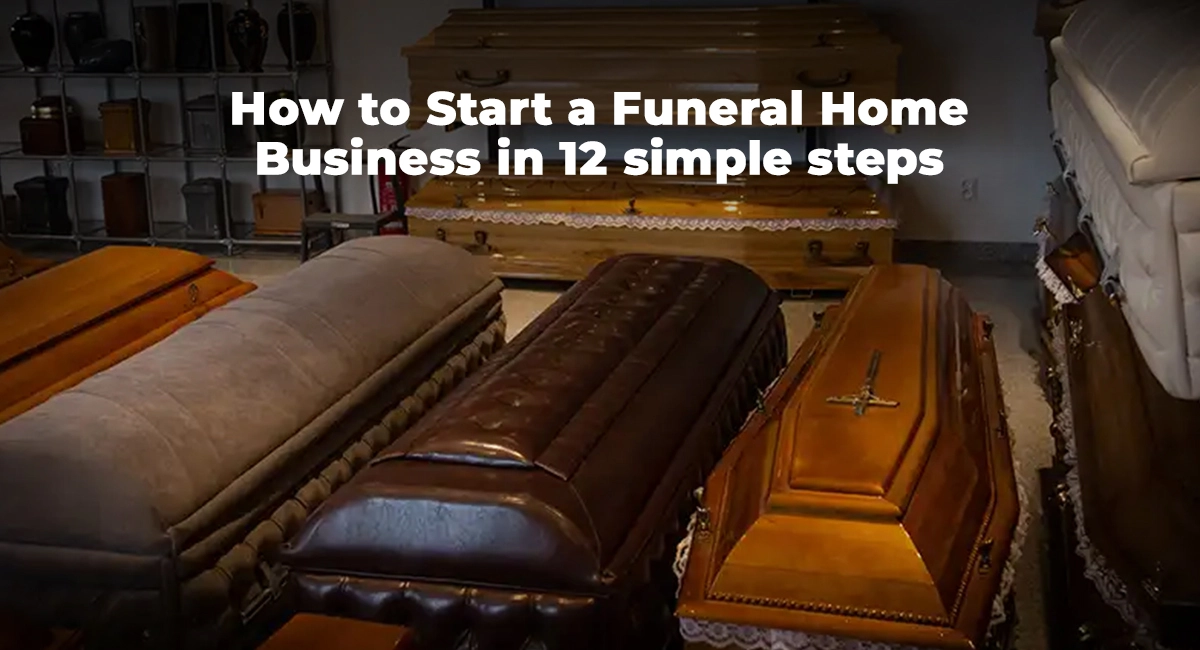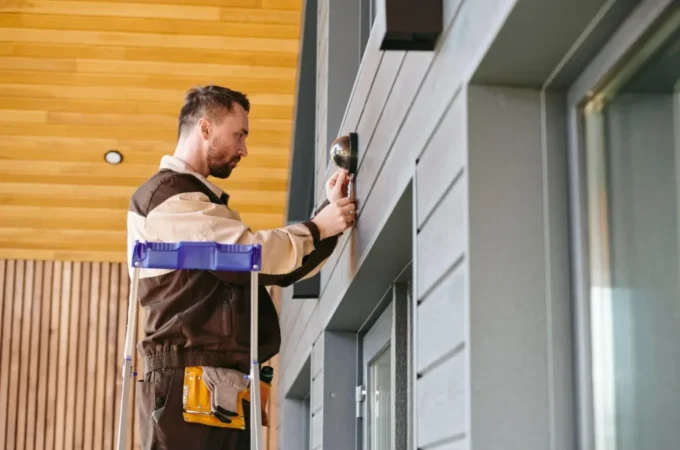
The Journey to Compassionate Care: How to Open a Funeral Home?
A loved one’s death is an incredibly emotional period. Funeral homes are essential in helping families through this trying time by providing comfort and direction during their grieving process. However, have you ever pondered what it takes to start a funeral home and work in this crucial sector of the economy?
Opening a funeral home could be a rewarding career choice for you if you have a strong entrepreneurial spirit and are passionate about helping families in their time of need. This blog acts as your all-inclusive manual, going over the procedures needed to start a funeral home as well as the fundamental traits you’ll need to be successful.
Table of Contents
ToggleUnderstanding the Funeral Home Industry
It’s important to have a solid understanding of the funeral industry before getting into the details of how to operate a funeral home. Funeral homes are essential to society because they arrange for funerals and memorial ceremonies, take care of the processing and disposal of human remains, and assist families in their time of need.
Managing all facets of the funeral process will fall within your purview as a funeral director, including first meetings with bereaved families, funeral planning, preparing the body for burial or cremation, and supervising funeral services.
The funeral home industry caters to the emotional and logistical needs of families following a death. Funeral homes typically offer a variety of services, including:
- Body preparation and mortuary services
- Funeral and memorial service arrangements
- Grief counseling and support
- Casket and urn selection
- Cemetery arrangements
- Transportation of the deceased
The industry landscape is evolving, with a growing trend towards personalization and affordability. Understanding these trends and tailoring your services accordingly will be key to establishing your funeral home in the market.
Steps to How to Open a Funeral Home?
1. Research and Planning: Start by gathering as much information as possible on the funeral business, regional market trends, and local laws and regulations.
Create a thorough business plan that details your goals, target audience, services to be provided, cost structure, and promotional tactics. When choosing a location for your funeral home, take into account elements like amenities, facility size, and location.

2. Obtain the Required Licenses and permissions: In order to operate a funeral home in most jurisdictions, you must obtain a number of licenses and permissions in order to adhere to local and state laws.
These could include permits from the health department, zoning boards, embalmers, funeral directors, and businesses. Before opening your funeral home, familiarize yourself with the particular regulations in your area and make sure you have complied with all legal duties.
3. Secure Financing: Purchasing equipment, hiring staff, leasing or buying a funeral home, and other initial fees are all important when starting a funeral home.
To get the money you need for your project, look into financing choices like investment partnerships, credit lines, and small company loans. To guarantee financial sustainability, create a thorough financial strategy that details your start-up costs, expected income, and expenses.
4. Develop Relationships: Building credibility in the funeral profession and getting recommendations from nearby hospitals, nursing homes, hospices, churches, and community organizations require forging solid relationships. To improve your reputation and exposure in the community, engage in community outreach programs, network with other funeral professionals, and go to industry events.
5. Set Up Your Facility: Create a warm and consoling atmosphere for bereaved families by designing and furnishing your funeral home.
Make sure your institution conveys professionalism, decency, and compassion by taking into account elements like layout, design, lighting, and amenities. Install the tools and technologies required for chapel services, embalming, viewing rooms, and administrative tasks while adhering to health and safety regulations.
6. Hire and Train Staff: Choose empathetic, skilled employees to join your funeral home team. This includes licensed funeral directors, embalmers, support staff, and administrative staff. Give your employees through training and continual opportunities for professional growth to make sure they are prepared to offer bereaved families outstanding assistance and service.
7. Develop Service Offerings: To cater to the various needs and interests of your clientele, provide a variety of funeral service packages and possibilities.
Provide pre-planning preparations, grief support resources, individualized tribute alternatives, traditional burial services, cremation services, and memorial services. Adapt your services to each family’s particular needs, taking into account their cultural, religious, and personal preferences. Show that you are sensitive to and respectful of their situation.
8. Market Your Funeral Home: Create a smart marketing strategy to draw customers from your target market and spread the word about your funeral home.
Make use of a variety of traditional and digital marketing methods, such as social media platforms, online directories, print ads, and community outreach programs. In all of your marketing materials and communications with prospective customers, highlight your knowledge, empathy, and dedication to quality.
The Qualities of a Successful Funeral Home Owner
Beyond the business acumen, opening and running a successful funeral home requires a unique blend of personal qualities:
Compassion and Empathy: Essential for connecting with grieving families, providing emotional support, and offering guidance with sensitivity.
Strong Communication Skills: Vital for navigating sensitive conversations, explaining funeral planning options clearly, and ensuring understanding.
Organization and Attention to Detail: Crucial for managing logistics, legalities, and ensuring a smooth, respectful experience for families.
Professionalism and Ethical Conduct: Upholding the highest ethical standards builds trust and fosters long-term relationships with families.
Resilience and Emotional Intelligence: Managing difficult emotions while supporting grieving families requires emotional resilience and intelligence.
Challenges and Considerations
There are certain difficulties and factors to take into account when starting and running a funeral home. These could consist of:
Owing to frequent exposure to loss, sadness, and delicate family dynamics, working in the funeral business can have a substantial negative emotional impact. Setting limits, asking for help from coworkers and mental health specialists, and emphasizing self-care are crucial behaviors to prevent burnout.
Funeral homes are required to follow stringent regulations in order to stay in accordance with the law, ethics, and health. Maintaining correct documentation, applying best practices, and keeping up with regulatory changes are essential to protecting the integrity and reputation of your company.
Success in the fiercely competitive funeral business depends on uniqueness. You may differentiate your funeral home from competition and draw and keep customers by providing personalized experiences, great customer service, and unique services.
FAQs About Opening a Funeral Home
1. What is the importance of understanding the funeral industry?
Understanding the funeral industry is crucial as funeral homes play a vital role in providing funeral services, handling the preparation of remains, and offering grief support to families.
2. What are the essential steps to open a funeral home?
The essential steps include conducting research and planning, obtaining necessary licenses and permits, securing financing, building relationships, setting up your facility, hiring and training staff, developing service offerings, and marketing your funeral home.
3. What qualities are necessary for success as a funeral home owner?
Successful funeral home owners possess qualities such as compassion, strong communication skills, organization, professionalism, resilience, and emotional intelligence.
4. What challenges should I consider when opening a funeral home?
Challenges include managing the emotional toll of the job, ensuring regulatory compliance, and navigating competition in the industry.
5. How can I differentiate my funeral home in a competitive market?
You can differentiate your funeral home by offering unique services, exceptional customer service, personalized experiences, and by staying abreast of industry trends.
Conclusion
Opening a funeral home is a profound and rewarding endeavor that requires dedication, compassion, and a commitment to serving others during life’s most difficult moments. By following the steps outlined in this guide and navigating the challenges with resilience and empathy, you can build a successful funeral home that provides comfort, support, and solace to grieving families for generations to come. Remember, the impact you make in the lives of others through your funeral home is immeasurable, making this journey both professionally and personally fulfilling.






